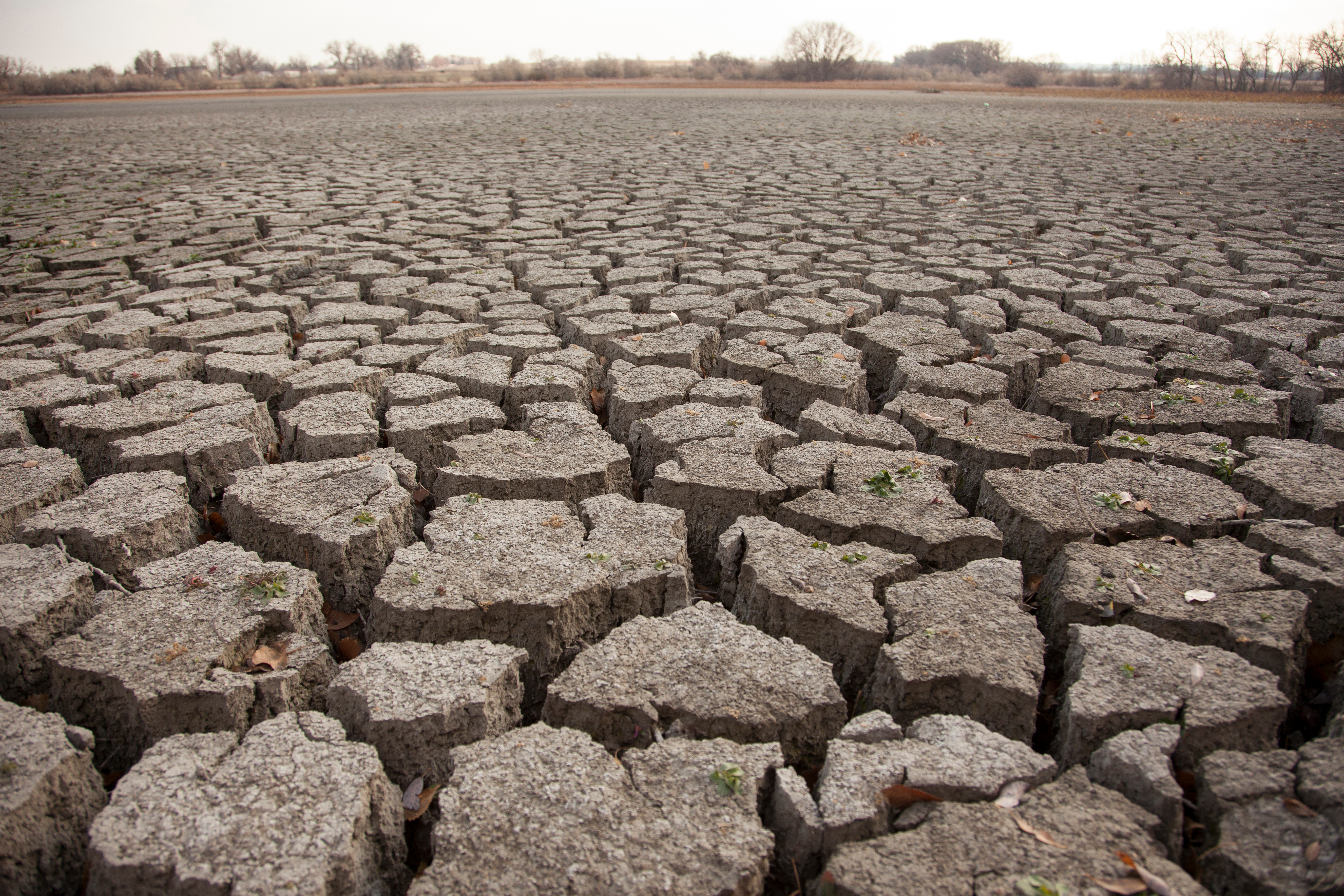Drought and heat wave experts available to explain research and potential impacts
Scientists are studying hazards and impacts of drought and heat waves
Jul 13, 2021 - by Staff
Jul 13, 2021 - by Staff

Teller Lake experiencing extreme drought. Photo credit Carlye Calvin, University Corporation for Atmospheric Research.
As areas across North America experience record-setting heat waves and face extended periods of drought, scientists at the National Center for Atmospheric Research (NCAR) are working to better understand and predict these extreme weather and climate events that impact human health and well-being.
Our experts are available to discuss issues such as:
Frank Flocke, NCAR senior scientist
ffl@ucar.edu
An atmospheric chemist and an expert on many aspects of air quality, Flocke has studied how weather conditions that are typically associated with extreme heat — such as clear skies, strong sunshine, and stagnant air — can worsen air quality. He can address questions about emissions from wildfires and human activities that pose risks to human health, especially during severe heat waves.
Dave Gochis, NCAR scientist
gochis@ucar.edu
An expert in hydrometeorology, Gochis studies flooding and drought and how to better predict them. In particular, he is interested in how droughts occur during summer monsoon season as well as snowpack and seasonal water supply availability and prediction in the West.
Daniel Kennedy, NCAR scientist
djk2120@ucar.edu
Kennedy studies how vegetation responds to extreme changes in water availability, such as drought or increased precipitation. In particular, he is available to answer questions related to improving the vegetation and water interaction component in climate models to better understand how these systems react in the real world.
David Lawrence, NCAR senior scientist
dlawren@ucar.edu
Lawrence specializes in using computer models to better understand interactions between the land surface and climate change. He applies his modeling expertise to studying the water cycle, both regionally and globally, and how the water cycle responds to climate change and human development.
Danica Lombardozzi, NCAR scientist
dll@ucar.edu
Lombardozzi is an expert in terrestrial ecosystems, studying how human activities and climate impact crops and vegetation, and how these changes in turn affect the climate. In particular, she uses ecological models to understand how vegetation will be impacted by climate change, including droughts and heat waves.
Gerald Meehl, NCAR senior scientist
meehl@ucar.edu
An internationally recognized expert in climate variability and change, Meehl researches connections between our changing climate and altered weather patterns, including the greater frequency of record-high daily temperatures. He can answer questions related to the influence of climate change on heat waves, drought, precipitation patterns, and other weather and climate events.
Cassandra O’Lenick, NCAR scientist
cassie@ucar.edu
O’Lenick, an environmental epidemiologist, examines the health impacts of ambient and indoor environmental exposures among vulnerable populations. She recently analyzed the impacts of extreme indoor heat on the elderly population in Houston, working with an interdisciplinary team of researchers to develop an innovative method to estimate the health risks of older adults who are exposed to high temperatures indoors.
Gabriele Pfister, NCAR scientist and deputy director, Atmospheric Chemistry Observations & Modeling Laboratory
pfister@ucar.edu
Pfister is an atmospheric chemist with expertise in the movement and evolution of air pollutants, including the interactions between extreme heat and air quality. She has researched the potential influence of climate change on ozone pollution, and she has also analyzed the complex ways that emissions from human activities and wildfires affect air quality in various weather conditions, including heat waves.
Andreas Prein, NCAR scientist
prein@ucar.edu
Prein is an expert in climate modeling with a particular focus on changing weather patterns in North America, including severe thunderstorms, drought, and flooding. His research seeks to improve long-term prediction of extreme events, and he is currently working on forecasting trends in monsoon precipitation in the southwestern U.S.
Isla Simpson, NCAR scientist
islas@ucar.edu
Simpson’s research focuses on understanding the mechanisms that cause large-scale changes in the atmosphere that influence regional climate and weather patterns on a variety of timescales from sub-seasonal variability (months) to long-term climate change (decades). She is available to answer questions about predicting regional changes in temperature and precipitation, including drought.
Daniel Swain, NCAR research fellow and climate scientist with the University of California, Los Angeles
dlswain@ucla.edu
Swain is a climate scientist who is especially interested in how climate change is affecting regional climate extremes. He is engaged in multiple research projects that focus on understanding the increasing risk of droughts, floods, and wildfires in the American West. Widely quoted in the media, Swain tweets regularly from @Weather_West and writes the Weather West blog, which provides real-time perspectives on California weather and climate.
Olga Wilhelmi, NCAR scientist
olgaw@ucar.edu
Wilhelmi is a geographer who researches interactions among people, weather, and climate with the goal of understanding societal risk and adaptive capacity to extreme weather events and climate change. She is an expert on the impacts of extreme outdoor and indoor heat on urban residents, collaborating with health experts, first responders, and others to map vulnerabilities and develop potential strategies to safeguard those at risk.
Andrew Wood, NCAR scientist
andywood@ucar.edu
A leading expert in streamflow forecasting, hydrologic modeling, climate change, and water resources, Wood is available to answer questions related to flood and drought prediction and monitoring, as well as hydroclimate change and associated impacts. His research focuses on real-world applications of weather, climate and hydrologic science to advance water resources, energy and emergency management and decision making.